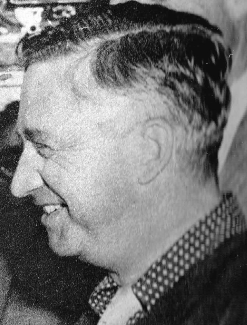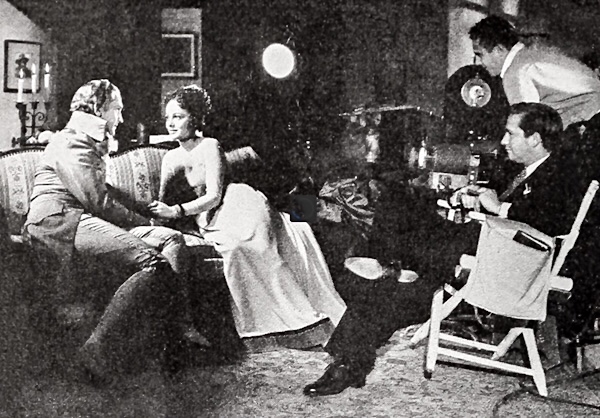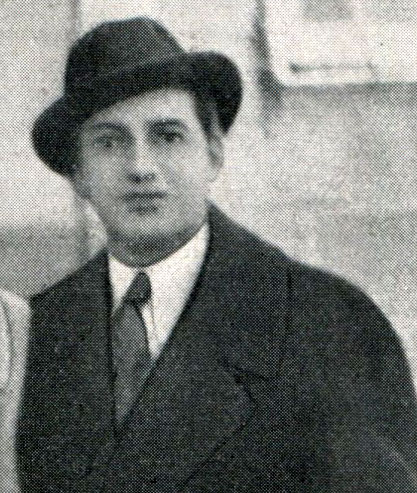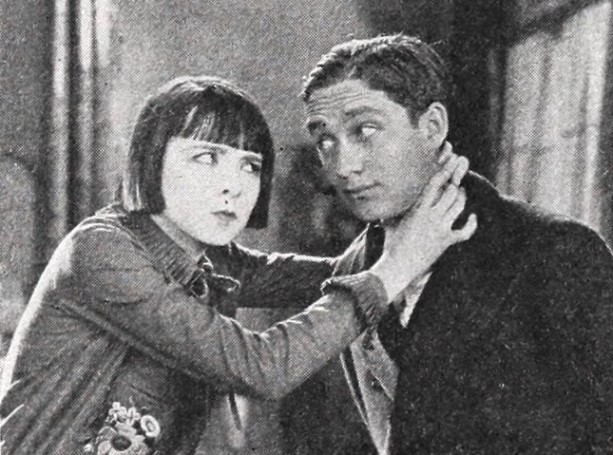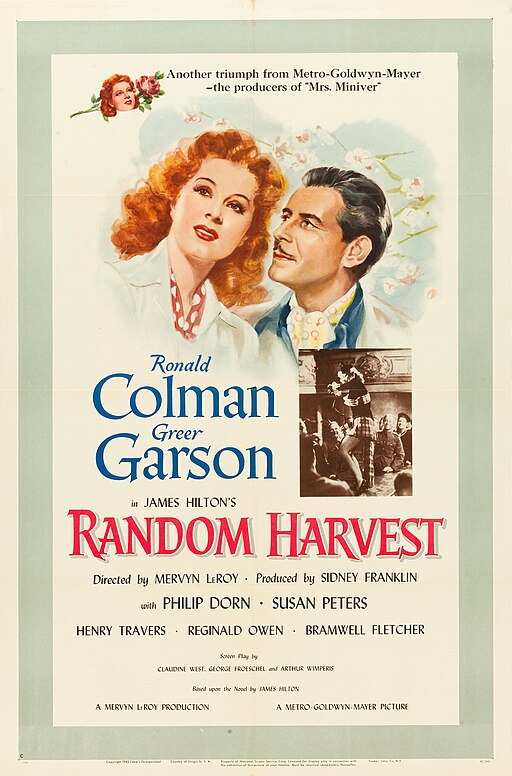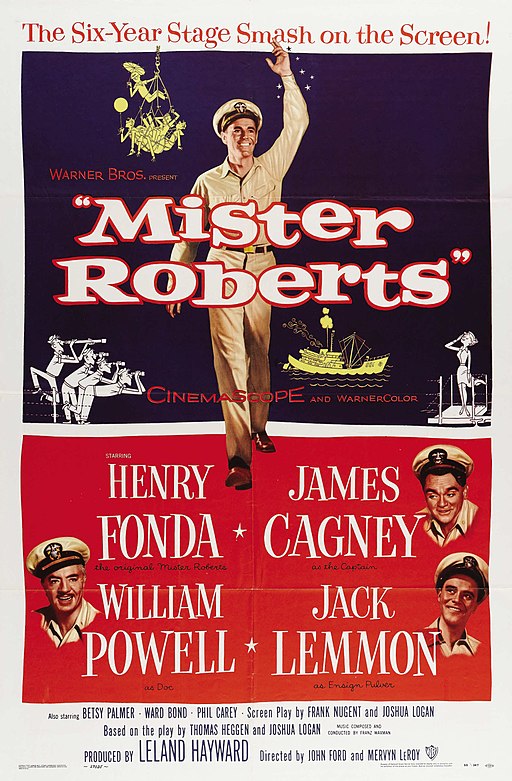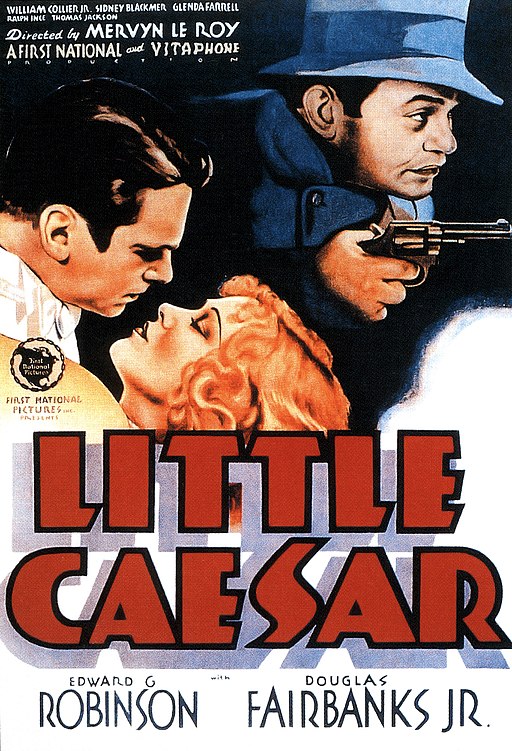Mervyn LeRoy
back| Full Name | Mervyn LeRoy |
| Born | October 15, 1900 |
| Birthplace | San Francisco, California, USA |
| Died | September 13, 1987 |
| Buried | Forest Lawn Memorial Park, Glendale, California, USA |
| Married to | Elizabeth Edna Murphy (1927–1935, divorced) - Doris Warner (1935–1942, divorced), daughter of Warner Bros. co-founder Harry Warner - Katherine |
| Children | Warner LeRoy, with Doris Warner |
| Notable films | Little Caesar (1931) - I Am a Fugitive from a Chain Gang (1932) - Gold Diggers of 1933 (1933) - Mister Roberts (1955) - The BAd Seed (1956) - Gypsy (1962) |
Mervyn LeRoy
The Versatile Storyteller of Golden Age Hollywood
LeRoy's career spanned from the silent era into the sound era, and he was known for his versatility in directing a wide range of genres. He started as an actor and then moved behind the camera, becoming one of the most successful filmmakers in Hollywood. LeRoy was also instrumental in bringing "The Wizard of Oz" (1939) to the screen, though he did not direct it; he was the one who initially acquired the rights to the book for MGM and served as an uncredited producer.
His legacy includes not only his films but also his contribution to developing new talent and his impact on the Hollywood studio system. LeRoy was nominated for an Academy Award for Best Director for "Random Harvest" and received an honorary Oscar in 1976 for his lifetime contributions to the film industry.
Related
Mervyn LeRoy
Biography and Analysis of his Work
Early Life and Background
- Born: October 15, 1900, in San Francisco, California.
- Family Background: He was born into a Jewish family. His parents were Harry LeRoy, a department store owner, and Edna Armer, a homemaker.
- Early Struggles: His father's business failure deeply affected the family, causing young Mervyn to work various jobs to help support them.
Entry into Entertainment
- Initial Steps: LeRoy started his career as an actor in silent films. He appeared in several shorts and features.
- Transition to Behind-the-Scenes: His move to directing and producing marked a significant turn in his career.
Career Highlights
- Directorial Debut: His first major success as a director came with the film "Little Caesar" in 1931, which helped establish the gangster film genre.
- Variety of Genres: LeRoy was known for his versatility, directing films across different genres, from dramas and romances to comedies and musicals.
- Warner Bros. Era: He worked extensively with Warner Bros., where he directed several significant films.
- Major Films: Some of his notable movies include "I Am a Fugitive from a Chain Gang," "Gold Diggers of 1933," "Random Harvest," "Mister Roberts," and "The Bad Seed."
- Involvement with 'The Wizard of Oz': While not the director, LeRoy was instrumental in the production of this iconic film.
- Awards and Nominations: He received an honorary Oscar in 1976 for his contributions to the film industry.
Personal Life
- Marriages and Family:
- First marriage to Elizabeth Edna Murphy ended in divorce.
- His second marriage to Doris Warner produced a son, Warner LeRoy, a prominent restaurateur and entertainment businessman.
- His third and final marriage was to Katherine "Kitty" Spiegel, which lasted until his death.
- Philanthropy and Personal Interests: LeRoy was known for his philanthropic efforts and was an avid golfer and art collector.
Later Years and Death
- Later Career: In his later years, LeRoy continued to produce films, though at a less frequent pace.
- Death: He passed away on September 13, 1987, in Beverly Hills, California.
- Legacy: Mervyn LeRoy's legacy in the film industry is marked by his contributions to many iconic films and his role in shaping the early Hollywood studio system.
LeRoy's journey from a young actor to a leading director and producer in Hollywood is a testament to his versatility, creativity, and resilience. His films, which often tackled social issues and featured innovative storytelling techniques, left a lasting impact on the film industry.
Analysis of Mervyn LeRoy’s Style of Direction:
Mervyn LeRoy's directorial style is characterized by several distinctive features, which contributed to his lasting impact on the film industry:
Versatility Across Genres
LeRoy was known for his ability to direct a wide range of genres, from hard-hitting dramas and film noirs to light comedies and lavish musicals. This versatility is a testament to his adaptability and understanding of different narrative forms.
Pioneering the Gangster Genre
One of LeRoy's most significant contributions was in the development of the gangster film genre. His 1931 film, "Little Caesar," is often credited with establishing the conventions of the genre, including the rise and fall narrative, the portrayal of the anti-hero, and the depiction of crime and violence.
Focus on Social Issues
Many of LeRoy's films, such as "I Am a Fugitive from a Chain Gang" and "They Won't Forget," tackled social issues. He had a knack for blending entertainment with commentary on societal problems, often highlighting injustices and moral dilemmas.
Realism and Humanism
LeRoy's films frequently displayed a sense of realism, focusing on human emotions and experiences. He had a talent for drawing out nuanced performances from his actors, making the characters relatable and the stories more impactful.
Innovative Storytelling Techniques
LeRoy was not afraid to experiment with narrative and visual techniques. His use of montage, particularly in films like "Gold Diggers of 1933," was innovative for the time. He also had a keen sense for pacing, keeping the audience engaged through the rhythm of the storytelling.
Actor's Director
LeRoy was known for his ability to work well with actors, guiding them to give memorable performances. This skill was especially evident in his handling of complex characters and emotionally charged scenes.
Attention to Production Values
Even though LeRoy worked during the era of studio dominance, his films often stood out for their high production values. He had an eye for detail, whether it was in the lavish set designs of his musicals or the gritty realism of his dramas.
Legacy and Influence
LeRoy's influence extends beyond his own films. He was a mentor to many young filmmakers and helped discover and nurture new talent. His style and approach to filmmaking paved the way for future generations of directors.
In summary, Mervyn LeRoy's directorial style was marked by his versatility, ability to tackle social issues, focus on realism and human emotion, innovative storytelling, skilled actor direction, and attention to production values. These qualities not only made him a significant figure in Hollywood but also left a lasting legacy in the film industry.
Memorable Quotes from Mervyn LeRoy:
On Filmmaking and Storytelling:
"Without a good story, you have nothing. You're dead."
On Success and Ambition:
"I guess I've always been ambitious and always wanted to be successful. Not to prove anything to anybody, but just to be something myself."
On the Power of Movies:
"I believe that the motion picture is one of the most marvelous inventions in history. It's tremendously inspiring to be able to tell a story that can move people's hearts and minds."
Regarding Challenges in Directing:
"Directing is a tough job. It's hard to stay fresh and keep finding the drive to make things better."
On the Essence of Film:
"A great film is a combination of intelligence and heart."
Reflecting on His Career:
"I've had a wonderful life in the movies. I've met fascinating people, seen exotic places, and created stories that reached so many."
Awards and Nominations:
Academy Awards
- Best Picture Nomination (as a producer): For "Random Harvest" (1942).
- Best Director Nomination: For "Random Harvest" (1942).
- Honorary Oscar: In 1976, LeRoy received an Honorary Academy Award for his lifetime achievements in the motion picture industry.
Other Honors and Recognitions
- Hollywood Walk of Fame: LeRoy has a star on the Hollywood Walk of Fame for his contributions to the motion picture industry.
- Directors Guild of America: He was honored by the Directors Guild of America for his illustrious career.
- George Eastman Award: He received this award, which honors outstanding contribution to the film industry.
Retrospectives and Posthumous Recognitions
- Film Retrospectives: Various film festivals and institutions have held retrospectives of his work, celebrating his impact on cinema.
While these are the primary awards and honors LeRoy received, it's important to note that his influence extends beyond formal recognition. His films, particularly those from the pre-Code and classic Hollywood eras, have been critically reevaluated and celebrated in film studies and retrospectives. His legacy as a filmmaker, particularly in genres like the gangster film and the social problem film, remains influential in the industry.
Movies Directed by Mervyn LeRoy:
1920s
- No Place to Go (1927): A drama about a wealthy man who loses his fortune and struggles to adjust to a new life.
- Flying Romeos (1928): A light comedy featuring aerial stunts and romance.
- Harold Teen (1928): A romantic comedy based on a popular comic strip character, Harold Teen.
- Oh Kay! (1928): A musical comedy about a young woman who becomes involved in bootlegging.
- Naughty Baby (1928): A romantic comedy involving a taxi dancer and a wealthy playboy.
- Hot Stuff (1929): A comedic take on firefighting and romantic entanglements.
1930s
- Little Caesar (1931): A landmark gangster film about the rise and fall of a small-time criminal.
- Gentleman's Fate (1931): A drama about a man who discovers he's part of a mafia family.
- Too Young to Marry (1931): A romantic comedy about young lovers facing societal pressures.
- Broadminded (1931): A comedy featuring cross-country adventures and romantic escapades.
- Five Star Final (1931): A critique of tabloid journalism focusing on an editor exploiting a decades-old murder.
- Tonight or Never (1931): A romantic comedy about an opera singer seeking love.
- High Pressure (1932): A comedy-drama about a fast-talking promoter selling fake oil stocks.
- The Heart of New York (1932): A comedic tale of a plumber-turned-inventor in New York City.
- Two Seconds (1932): A drama exploring the last thoughts of a man sentenced to the electric chair.
- Three on a Match (1932): A drama about the diverging lives of three school friends.
- I Am a Fugitive from a Chain Gang (1932): A harrowing drama about an unjustly convicted man's struggles.
- Hard to Handle (1933): A comedy about a fast-talking promoter's various schemes.
- Elmer, the Great (1933): A baseball comedy-drama about a small-town player's rise to fame.
- Gold Diggers of 1933 (1933): A famous pre-Code musical about showgirls during the Great Depression.
- Tugboat Annie (1933): A comedy-drama about a tugboat captain and her alcoholic husband.
- The World Changes (1933): A drama tracing a family's rise from prairie farmers to wealthy industrialists.
- Hi, Nellie! (1934): A drama about a newspaper editor demoted to the 'heartthrob' column.
- Heat Lightning (1934): A drama set in a desert motel with various intriguing guests.
- Sweet Adeline (1934): A musical set in the 1890s about a barmaid turned Broadway star.
- Oil for the Lamps of China (1935): A drama about an American oil company employee in China.
- Page Miss Glory (1935): A romantic comedy about a small-town girl turned overnight sensation.
- I Found Stella Parish (1935): A drama about an actress fleeing her past to protect her daughter.
- Anthony Adverse (1936): A historical adventure following the trials of an orphan in 18th-century Europe.
- Three Men on a Horse (1936): A comedy about a man with an uncanny ability to pick winning horses.
- The King and the Chorus Girl (1937): A romantic comedy about a romance between a monarch and a chorus girl.
- They Won't Forget (1937): A drama about the aftermath of a murder in a southern town.
- Fools for Scandal (1938): A romantic comedy about a Hollywood star in Paris.
1940s
- Waterloo Bridge (1940): A romantic war drama about a soldier and a ballerina during WWI.
- Escape (1940): A drama about an American trying to rescue his mother from Nazi Germany.
- Blossoms in the Dust (1941): A biographical film about Edna Gladney, who fought for orphan's rights.
- Unholy Partners (1941): A drama about a newspaper editor partnering with a gangster.
- Johnny Eager (1941): A film noir about a paroled gangster pretending to reform.
- Random Harvest (1942): A romantic drama about an amnesiac and his love affair.
- Madame Curie (1943): A biographical film about the famous scientist Marie Curie.
- Thirty Seconds Over Tokyo (1944): A war film about the Doolittle Raid during WWII.
- Without Reservations (1946): A romantic comedy about a writer and a marine.
- Homecoming (1948): A war drama about a doctor's experiences and love affair during WWII.
- Little Women (1949): An adaptation of Louisa May Alcott's novel about four sisters growing up during the Civil War.
- Any Number Can Play (1949): A drama about a casino owner facing various personal and professional challenges.
1950s
- East Side, West Side (1949): A drama about infidelity and romance in New York City.
- Quo Vadis (1951): A historical epic set in ancient Rome during the reign of Nero.
- Million Dollar Mermaid (1952): A biographical film about Australian swimming star Annette Kellerman.
- Latin Lovers (1953): A romantic comedy about a wealthy woman's romantic pursuits.
- Rose Marie (1954): A musical set in the Canadian wilderness.
- Strange Lady in Town (1955): A western drama about a female doctor in 1880s New Mexico.
- Mister Roberts (1955, co-directed with John Ford): A comedy-drama set aboard a WWII naval cargo ship.
- The Bad Seed (1956): A psychological horror-thriller about a mother suspecting her daughter of being evil.
- No Time for Sergeants (1958): A comedy about a country bumpkin drafted into the Air Force.
- Home Before Dark (1958): A drama about a woman's return home after a mental breakdown.
- The FBI Story (1959): A drama about the history of the FBI through the eyes of one of its agents.
1960s
- Wake Me When It's Over (1960): A comedy about an American soldier on a Japanese island.
- The Devil at 4 O'Clock (1961): An adventure drama about a priest and convicts on a South Pacific island.
- A Majority of One (1961): A drama about a Jewish widow and a Japanese businessman.
- Gypsy (1962): A musical comedy-drama about the famous burlesque entertainer Gypsy Rose Lee.
- Mary, Mary (1963): A romantic comedy about a man's ex-wife disrupting his new marriage.
- Moment to Moment (1965): A psychological thriller about a woman who accidentally kills a man.
1970s
- The Green Berets (1968, co-directed with John Wayne): A war film about the Green Berets during the Vietnam War.
- Waterloo (1970, producer only): A historical drama about Napoleon's final battle.

